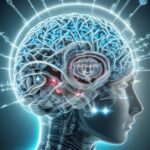
Top Health News — ScienceDaily Top stories featured on ScienceDaily’s Health & Medicine, Mind & Brain, and Living Well sections.
- ‘Dancing molecules’ heal cartilage damageon July 26, 2024 at 11:32 pm
New therapy uses synthetic nanofibers to mimic the natural signaling of a protein that is crucial for cartilage formation and maintenance. Researchers found that intensifying the motion of molecules within the nanofibers led to more components needed for regeneration. After just four hours, the treatment activated the gene expression necessary to generate cartilage. Therapy could be used to treat osteoarthritis, which affects nearly 530 million people worldwide.
- Building bridges between cells for brain healthon July 26, 2024 at 3:33 pm
The brain contains many cell types, from the prominent neurons to the lesser-known microglia. The latter are integral to the brain’s immune system and play a crucial role as the brain’s cleanup crew. A recent study highlights that microglia establish connections with neurons through tunneling nanotubes. The researchers observed that microglia utilize these tubes to facilitate the clearance of toxic proteins from neurons and to promote neuronal health.
- Have a seat, doctor: Study suggests eye-level connection makes a difference in hospitalson July 26, 2024 at 3:33 pm
When doctors sit at hospitalized patients’ bedsides, it can have a more positive impact than if they stand, a review of data suggests — but a new study seeks to find out for sure.
- ‘Prelude’ to neuromuscular disease SMA may offer chances for better treatmenton July 26, 2024 at 3:33 pm
Spinal muscular atrophy (SMA) is a severe neurological disease for which there is presently no cure, although current therapies can alleviate symptoms. In the search for better treatment options, scientists are now drawing attention to previously unnoticed abnormalities in embryonic development. They base their argument on studies of so-called organoids: Laboratory-grown tissue cultures that can reconstruct disease processes.
- New drug shows promise in clearing HIV from brainon July 25, 2024 at 11:39 pm
An experimental drug originally developed to treat cancer may help clear HIV from infected cells in the brain, according to a new study. By targeting infected cells in the brain, drug may clear virus from hidden areas that have been a major challenge in HIV treatment.
- New research in fatty liver disease aims to help with early interventionon July 25, 2024 at 7:48 pm
A new study brings researchers closer to better understanding the pathology of the fatty liver disease MASH, which stands for metabolic dysfunction-associated steatohepatitis. MASH is a consequence of poor diet and obesity and results in severe damage to the liver. In MASH, the liver becomes filled with active and rapidly multiplying T cells, which are a type of immune cell. In today’s study researchers examine what these T cells look like and how they work in people with liver cirrhosis (a late stage of liver disease) and in an animal model of MASH.
- Physical training improves quality of life in advanced breast canceron July 25, 2024 at 7:47 pm
Targeted physical training can improve the quality of life of patients with metastatic breast cancer and alleviate fatigue. This is shown by an international randomized multicenter study. In the course of the training program, which included two sessions per week over nine months, disease- and therapy-related symptoms were markedly reduced, which was associated with a improved quality of life compared to the control group.
- Size doesn’t matter for mammals with more complex brains
- Sodium channels in breast cancer cells a promising target for future treatments, study revealson July 25, 2024 at 7:47 pm
A new study adds to evidence which suggests treating breast cancer patients with sodium channel blockers could be a promising future treatment to prevent the spread of cancer during the gap between diagnosis and surgery.
- Artificial blood vessels could improve heart bypass outcomeson July 25, 2024 at 7:47 pm
3D-printed blood vessels, which closely mimic the properties of human veins, could transform the treatment of cardiovascular diseases. Strong, flexible, gel-like tubes — created using a novel 3D printing technology — could improve outcomes for heart bypass patients by replacing the human and synthetic veins currently used in surgery to re-route blood flow, experts say.






